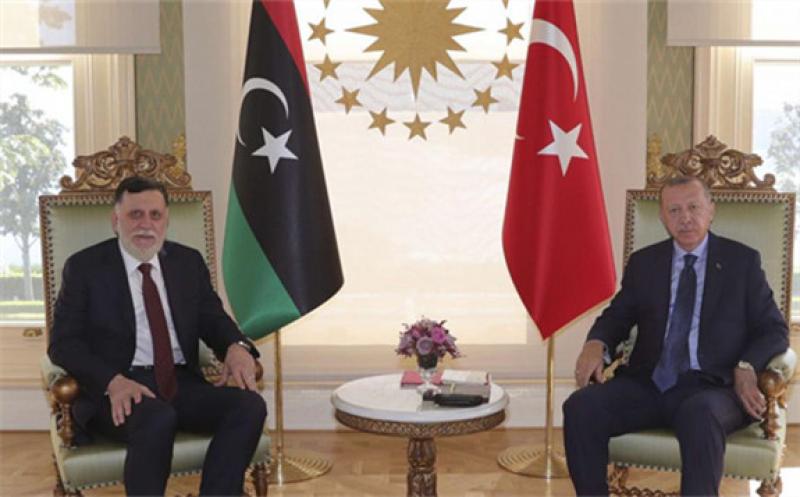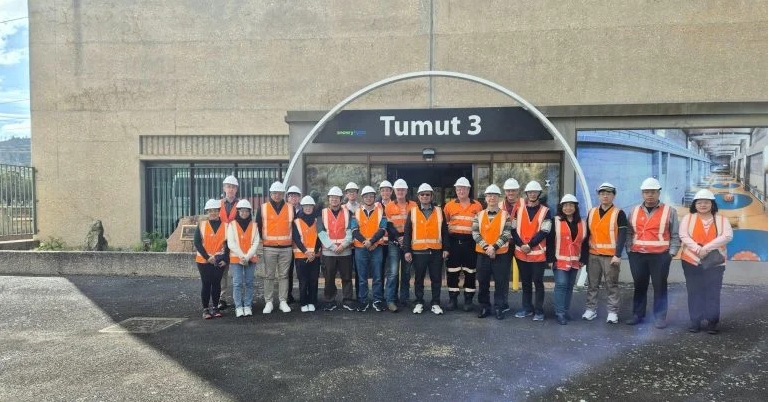Following a maritime and military agreement signed in November, Turkey and Libya’s United Nations-recognised Government of National Accord (GNA) inked another deal on August 13 that effectively opens up the oil-rich North African country’s market to Turkish contractors.

The deal, signed by Turkish Trade Minister Ruhsar Pekcan and the GNA’s Planning Minister Al-Taher Al-Juhaimi, both resolves ongoing issues between Turkish firms and Libyan employers and paves the way for new investments and projects, inviting Turkish contracting firms to take on projects in the country.
The agreement provides some 100 Turkish firms, which abandoned projects in Libya in 2011 due to the civil war, with the ability continue where they left off - granting them compensation for damages incurred to machinery and loss of construction products, among other benefits.
The deal covers new construction and zoning projects totalling $16 billion, as well as incomplete projects worth $19 billion for a total of $35 billion of the war-torn country’s construction, infrastructure and tender projects.
In a meeting in Ankara following the signing of the deal, Pekcan lauded the deal as a "new opportunity to show the whole world Turkish-Libyan cooperation," noting that Turkish contractors had taken on over 10,000 projects in 127 countries in the world, totalling $407 billion.
Mithat Yenigün, chairman of the Turkish Contractors Association (TMB), an umbrella organisation that represents the country’s leading contractors, said the deal signalled new hope for Turkey’s construction sector.
Turkish contracting companies had to leave their Libyan projects unfinished in 2011 over security problems such as looting of their construction sites, with some 25,000 workers returning to Turkey, Yenigün told Daily Sabah.
Yenigün added that there was some $1 billion to be received by Turkish companies in Libya as compensation for their losses another $1.7 billion in advances and assurance for ongoing projects and another $1.3 billion for damages on equipment, machines and inventory.
The Turkish construction sector’s first foreign project took place in Libya in 1972. The Turkish construction sector is now second only to China as the world’s biggest contractors.
Yenigün said that, despite interruptions due to the civil war, Libya remains in third place for Turkish contracting investments, comprising 7.2 percent of projects.
There are currently projects totalling $19 billion initiated by over 100 TMB-member companies in Libya, Yenigün noted.
In June, a Turkish delegation including Foreign Minister Mevlüt Çavuşoğlu and National Intelligence Agency (MİT) chief Hakan Fidan visited Tripoli to examine financial and political agreements between Ankara and the GNA.
The Memorandum of Understanding (MoU) in question between the two sides to solve the obstacles faced by Turkish contractors was signed soon thereafter.
The agreement arrives at a time when foreign currency is on the rise against the Turkish lira amid looming concerns over the dwindling foreign exchange reserves. One day before the MoU was signed, Turkish Finance Minister Berat Albayrak had fuelled a debate on the country’s economy with his remarks on foreign currency.
During a live interview, Albayrak said that increase in foreign currency exchange rate against the Turkish lira did not pose a threat to the country and that competitive rates and a low value currency provide Turkey with the ability to grow its economy faster.
Albayrak’s remarks bring into question why the central and public banks of Turkey opted to support the lira by selling $100 billion in foreign currency at a lower rate, instead of restraining exchange rates to prevent the further loss of value of the Turkish lira if, in fact, the loss of value to the lira and soaring foreign currency creates a competitive advantage to the country’s economy like Albayrak claims.
Turkey’s central bank last week made decision allowing banks to charge a commission of 1.5-5 percent on cash foreign currency withdrawals. It had previously ruled for a 0.2 percent tax on buying foreign currency and a presidential decree in May increased this rate by 500 percent, to one percent.
Even though Albayrak pretends like there is no problem in Turkey, the problem of foreign currency reserve deficiency is quickly growing into a crisis, contributing majorly to the vulnerability of the economy.
There is discussion in finance circles about a growing concern that owners of foreign currency reserves in banks will inevitably withdraw their funds on account of heavy tax and commission deductions.
We will have to wait and see just how the agreement signed with Libya, promising construction income totalling $35 billion on paper, will quell these concerns.







